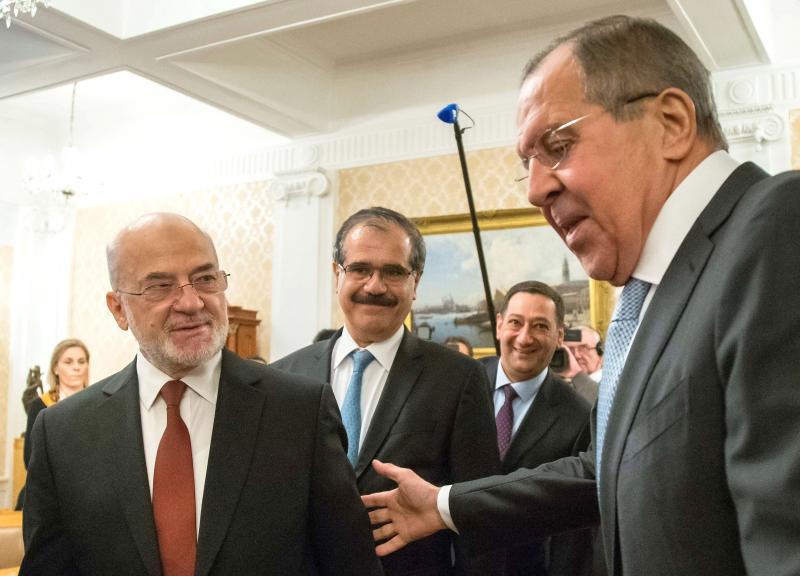Russia may replace and eclipse US role in Iraq
Russia’s outreach across the Middle East, which includes warming ties with the Gulf Cooperation Council and Egypt, has extended beyond its traditional ally Syria and into Iraq. It could, analysts said, provide an alternative to the military support from the United States on which Iraq has long relied.
As major combat operations grind to a halt, the United States’ land operations centre has closed and the deployment in Iraq of the 5,000 US troops commanded by US Army Major-General Walter Piatt remains uncertain. Should a hasty withdrawal occur, the predictable move, analysts said, would be for Russia to fill any void?
The winning card that has allowed Russian President Vladimir Putin to reassert Russia’s military and economic supremacy is the political desperation exhibited by his regional allies. This was noted and capitalised on early in Syria’s conflict. Propping up Syrian President Bashar Assad gave Russia its mandate and little successes to prevent its overseas adventures have been scored by the United States or others.
The United States’ use of sanctions and isolation fell short of its objective to isolate Putin. The expansion of Russia’s naval bases continues in the eastern Mediterranean, as well as increases of its airbases in Syria and along the border it shares with Iraq.
Baghdad is looking towards Russia for air support, weapons and oil deals. The expanding sphere of Russian influence provides Baghdad some of the assurances that the United States may discontinue depending on the outcome of Iraq’s parliamentary elections.
The United States has tried to deter Russia’s military spending as another alternative to curbing its aggression in territories where US stakes are high. Renewed calls for tougher measures to counter Putin’s expansionist programme were heard in the US Senate Armed Services Committee.
The Pentagon approved an additional $4.6 million to bolster security along Europe’s eastern flank. Prohibitions on its direct cooperation with the Russian military were extended. The US Senate shifted its sights towards a strategy of deterrence on land and in cyberspace, alongside asphyxiating sanctions and efforts to react to global public opinion in the war of words.
Narratives, promoted to blunt criticism of Russia’s hegemonic growth, reinvent the image of an intervening power as the saviour the region needs. The same is true about US coverage.
What fewer analysts take note of is how tit-for-tat reactions and bluster form the base of Russia’s and the United States’ reverse romance and, above all else, reinforce stereotypes of the United States as weaker and Russia as the alternative.
Russia is adopting moves exercised by its regional predecessor, winning contracts, ushering in giant state oil firms and mercenaries and accelerating the arms race by selling weaponry. Iraq recently purchased the Russian S‑400 air defence missile systems and other energy sector equipment. Although its optimism is tempered with caution, Putin is aware of the adversarial costs of investing in times of uncertainty.
“Single trade and investment deals… with no strings attached for Russia” has been one method adopted to mitigate potential costs, economist Agathe Demarais wrote in the London School of Economics Middle East Centre blog. Transactions and opportunities best summarise the Russian approach.
“Contrary to the US and Western countries, which have several military bases in the region… Russia could withdraw quickly should its foreign policy interests change,” Demarais argues.
The Islamic State (ISIS) still comes into play, despite having suffered major setbacks.
As Stanislav Ivanov of the Institute of World Economy and International Relations and the Institute of Oriental Studies of the Russian Academy of Sciences argued “ISIS is increasingly pointing its propaganda apparatus at Russia,” its newest great enemy. Ivanov said ISIS’s intended audience is bigger than Russian security services. It sends a louder message to any actor interested in protecting the nation-state system in a region where injustices prevail.
Many observers applauded Russia for “saving” the Syrian regime. The argument overstates the hand Russia will have in shaping the political phase in the region and ignores state fragility in Syria and neighbouring Iraq and ISIS’s captivity.
Dialogue will not unlock the next phase for the region’s political cast of foreign actors as much as consent between the United States and Russia if nothing else.
This article was originally published in The Arab Weekly.







